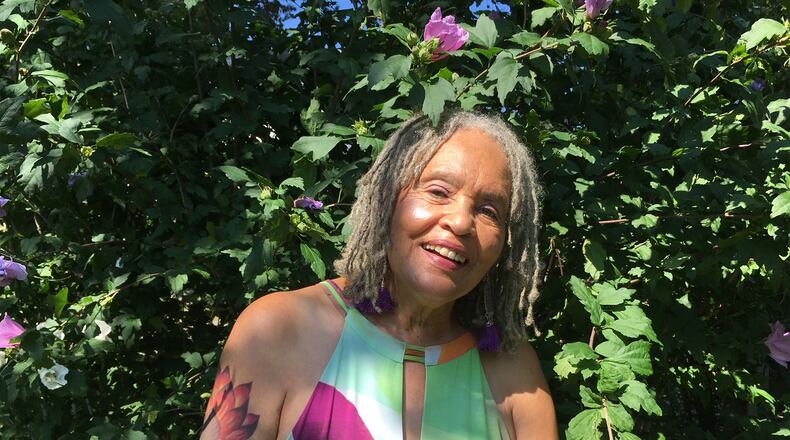It would be easy to proclaim Charlayne Hunter-Gault a trailblazer and leave it at that. The Emmy-winning journalist made her mark early when she became the first Black female student to desegregate the University of Georgia. Shortly thereafter, she became the first Black reporter to hold a staff position with The New Yorker.
But her commitment to break barriers didn’t stop there. Embarking on a mission to write “about Black people in ways they were rarely portrayed anywhere in the media — in their full humanity,” Hunter-Gault has compiled highlights from her 60-year career into a powerful and urgent collection titled “My People: Five Decades of Writing About Black Lives.”
“The 1619 Project” founder Nikole Hannah-Jones inquires in the book’s foreword, “what does journalistic neutrality and objectivity look like when your career began with a fight for racial justice?” Hunter-Gault was a child when her eyes landed on the comic strip “Brenda Starr, Reporter.” She wanted to become a journalist, yet the world she was coming up in, the segregated hotbed of the American South in the 1950s, hadn’t made space for people of color to equally pursue their dreams.
A judge’s 1961 ruling mandated the University of Georgia admit Hunter-Gault and her classmate. Together they paved the road to integration while battling harassment, assault and suspension after a riotous mob converged on campus shouting expletives and demanding their expulsion.
Hunter-Gault knew she had “a responsibility to confront issues of race and racism,” so she made a decision to focus her work on addressing these injustices “in ways that narrow the divide and focus on the positives of difference, rather than the all-too exploited negatives.”
The result is a body of work that, when presented together in “My People,” provides a fascinating record of the evolution of modern Black life. From her reporting on the early bubbling of the civil rights movement in Georgia, to establishing the Harlem bureau for the New York Times, to covering the end of apartheid in South Africa, Hunter-Gault has been on the frontlines fighting for equality as she told her people’s story.
Credit: Handout
Credit: Handout
“My People” begins with a series of articles published in the Times in the 1970s that focus on the Black population of Harlem. As after-school programs teaching Black heritage are established and community-based police alternatives are explored, Hunter-Gault’s reporting provides an intimate glimpse into the day-to-day life of the residents of Harlem as they strive to establish a self-determined society.
Interspersed are flashes of the future, a 2012 piece pinpointing deficiencies in civil rights education, or a 2019 letter to the editor correlating the biased history being taught in schools with the rising intolerance “germinating in the underbelly of our democracy.” By placing these particular articles in this particular order, Hunter-Gault demonstrates one of the most profound ways she has maintained her journalistic objectivity is by remaining focused on equality.
Equal access to the vote is a topic Hunter-Gault covers from a bevy of angles. A 1973 Times article about the late Congressman John Lewis extols his hope for expanding Atlanta’s Voter Education Project nationwide. An excerpt from Hunter-Gault’s 2021 “PBS News Hour” interview with Ruby Bridges discusses the rise in racism following Obama’s election. Numerous articles feature elected officials who have either contributed to increasing voter access or hold their positions because of it. The importance of equality in the electoral process takes center stage in Hunter-Gault’s work.
The economic burden racial disparity places on Black people is another topic Hunter-Gault has covered extensively over the decades. From the racially based income gap to the lack of upward mobility women face in the job market, she gives voice to the struggle but is never one to ignore the triumphs, either. Her 1970 Times article “More Negros Vacation as Barriers Fall” highlights the increase of middle-class Black families vacationing, both domestically and abroad, as their economic prosperity improves.
In the section of the book titled “My Sisters,” Hunter-Gault states that “while not all of my reporting was on Black women, I continued to be on the lookout for stories that helped spotlight their exclusion and the need and ways to change that.” Long before Columbia law professor Kimberlé Crenshaw coined the term “intersectional feminism” in 1989, (defined as a prism for seeing the way in which various forms of inequality often operate together and exacerbate each other), Hunter-Gault was reporting on concerns unique to Black women.
In 1972 she traveled to Chicago to attend a symposium that had gathered to “distinguish their interests from those of the white women’s liberation movement.” In the 1970 Times piece, “Many Blacks Wary of ‘Women’s Liberation’ Movement in U.S.,” she interviews the National Organization for Women head Aileen Hernandez, a Black woman, about the lack of Black involvement in the organization. Consistent with her commitment to balanced reporting, Hunter-Gault also includes an array of articles spotlighting successful female doctors, judges and community leaders, both in the United States and South Africa, where she served as CNN bureau chief in Johannesburg.
Whether she’s writing about her 2013 speech at the American University in Nigeria — given during the height of the radical Islamic group Boko Haram’s onslaught of killings and kidnappings — or recounting the afternoon she spent in Soweto with Nelson Mandela’s former neighbor watching his memorial service get rained out on TV, Hunter-Gault remains steadfast in her commitment to reporting the happenings around her.
Sometimes the events she covers are monumental, sometimes they are mundane. But the collection Charlayne Hunter-Gault has compiled in “My People” tells a vital and compelling story about the evolution of Black life.
NONFICTION
“My People: Five Decades of Writing About Black Lives”
by Charlayne Hunter-Gault
HarperCollins
368 pages, $27.99
About the Author
The Latest
Featured



